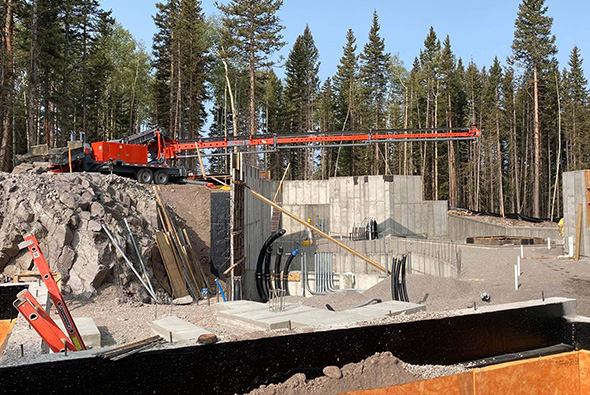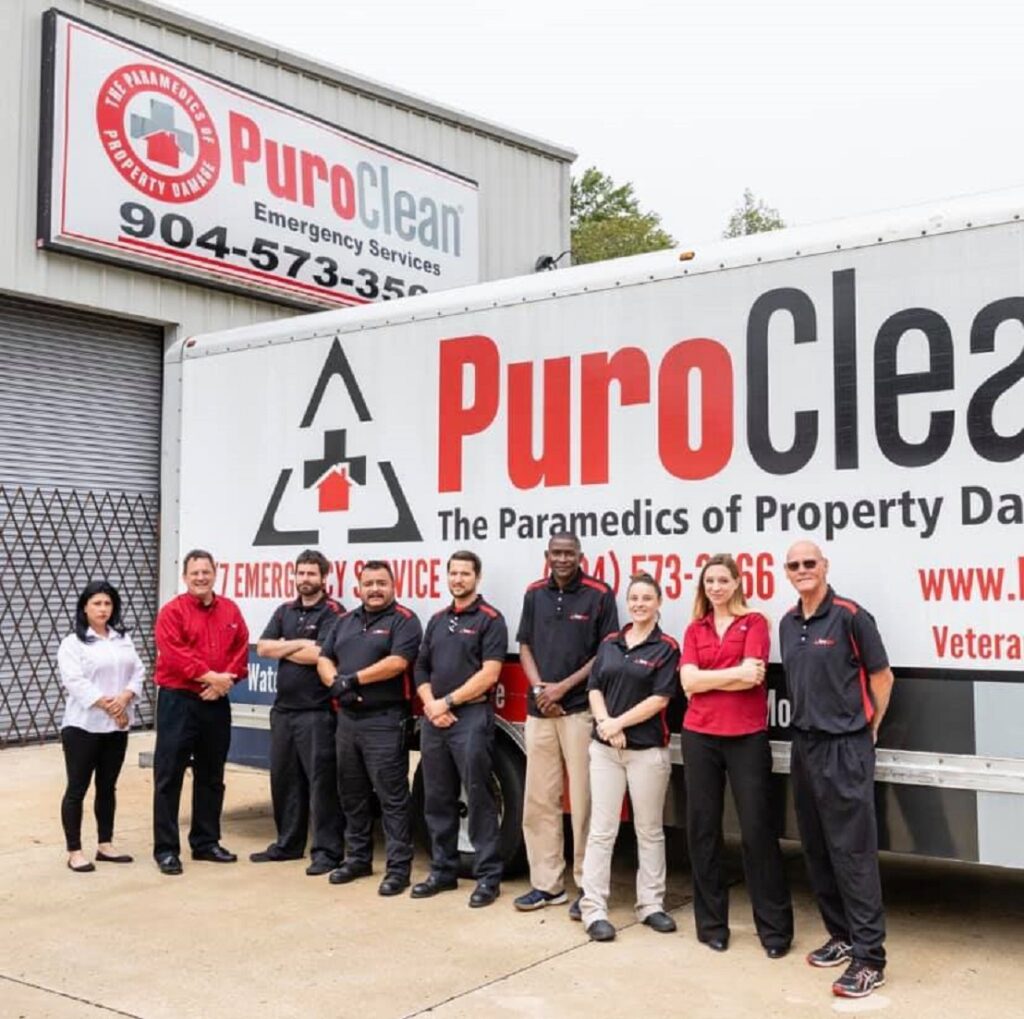When embarking on a construction project in the Golden State, understanding the fundamental differences between residential and commercial construction can save you time, money, and stress. Commercial contractors in California approach these distinct project types with specialized expertise, tools, and regulatory knowledge. Similarly, a construction company may focus exclusively on one sector or maintain separate divisions for each. This comprehensive guide explores the key distinctions between residential and commercial construction from the perspective of experienced California contractors.
Scale and Complexity: Beyond the Obvious Differences
The most apparent distinction between residential and commercial projects is their scale, but the differences run much deeper than simple size comparisons.
Residential Construction Characteristics
Residential projects typically involve:
- Standardized building codes focused on habitability and safety
- Simpler structural designs
- Shorter timelines (typically 3-12 months)
- Smaller crews and equipment needs
- More personalized client interactions
“Residential projects allow for a more intimate building process,” explains Maria Rodriguez, who leads a construction company in California specializing in luxury homes. “You’re creating someone’s personal sanctuary, which requires attention to details that reflect their lifestyle and preferences.”
Commercial Construction Realities
In contrast, commercial projects managed by commercial contractors in California generally feature:
- More complex building codes and accessibility requirements
- Sophisticated structural, mechanical, and electrical systems
- Extended timelines (often 1-3 years or longer)
- Larger crews with specialized subcontractors
- Formal communication channels with multiple stakeholders
This increased complexity demands specialized expertise that experienced commercial contractors in California develop through years of industry-specific work.
Regulatory Landscape: Navigating Different Requirements
California’s regulatory environment is famously stringent, but the specific requirements vary significantly between residential and commercial sectors.
Residential Regulatory Focus
For residential projects, regulations typically emphasize:
- Energy efficiency standards (Title 24)
- Fire safety features
- Seismic resilience for residential structures
- Local zoning and neighborhood compatibility
- Water conservation measures
Most construction companies in California that handle residential work have developed streamlined processes for these common requirements.
Commercial Compliance Challenges
Commercial contractors in California face a more complex regulatory landscape that includes:
- ADA accessibility compliance
- More stringent fire suppression requirements
- Complex occupancy classifications
- Enhanced seismic design requirements
- Environmental impact reviews
- Energy benchmarking and reporting
“The regulatory complexity for commercial projects can be overwhelming for those without experience,” notes James Chen, operations director at a leading commercial contractors in California firm. “We often spend months securing permits before construction even begins.”
Project Financing: Different Models for Different Sectors
How projects are funded represents another significant distinction between residential and commercial construction.
Residential Funding Approaches
Residential projects typically rely on:
- Individual mortgages or construction loans
- Personal savings and investments
- Home equity financing
- Smaller lending institutions and credit unions
The personal nature of residential financing means that a construction company in California often needs to help clients navigate budget constraints with creative solutions.
Commercial Financing Structures
Commercial projects utilize more complex funding mechanisms:
- Commercial construction loans with different terms and requirements
- Investor consortiums
- Development corporations
- Public-private partnerships
- Bond measures (for public projects)
Commercial contractors in California must understand these financing structures, as they directly impact payment schedules, reporting requirements, and contractual obligations.
Materials and Methods: Different Tools for Different Jobs
The materials and construction methods employed vary substantially between sectors, reflecting different priorities and performance requirements.
Residential Construction Materials
Residential projects typically feature:
- Wood framing as the predominant structural system
- Standardized dimensions and components
- Design-focused finishes and aesthetics
- Energy-efficient windows and insulation systems
- Residential-grade appliances and fixtures
While high-end homes may incorporate more sophisticated materials, most residential construction uses relatively standardized approaches that a construction company in California can efficiently implement.
Commercial Construction Materials
Commercial contractors in California work with:
- Steel framing and structural systems
- Concrete and masonry components
- Commercial-grade HVAC and electrical systems
- Specialized roofing and waterproofing systems
- Industrial-grade fixtures and finishes
These materials must withstand higher occupancy loads, greater wear and tear, and longer service life expectations, requiring specialized knowledge and installation techniques.
Design Process: Different Stakeholders, Different Approaches
The design development process differs significantly between residential and commercial projects.
Residential Design Development
For residential projects:
- Homeowners typically have direct input on design decisions
- Architects work closely with clients on personalization
- Design changes can sometimes be accommodated during construction
- Aesthetics and functionality share priority
A construction company in California specializing in residential work must excel at translating homeowner visions into practical building plans.
Commercial Design Complexity
Commercial contractors in California navigate a more complex design process:
- Multiple stakeholders influence design decisions
- Professional teams represent owner interests
- Design typically must be finalized before construction begins
- Functionality, efficiency, and return on investment often drive decisions
- Building performance metrics receive greater emphasis
This more formalized process requires sophisticated project management and stakeholder communication skills from commercial contractors in California.
Timeline Considerations: Speed vs. Complexity
Project timelines reflect the inherent differences between residential and commercial construction.
Residential Timeline Factors
Residential projects typically:
- Complete in 3-12 months depending on complexity
- Follow more predictable sequencing
- Have fewer long-lead items and specialized components
- Allow for more flexible scheduling
“Residential projects operate on a more human scale,” explains Sophia Lee, who runs a construction company in California focused on custom homes. “We can often adjust schedules around important family events or specific client needs.”
Commercial Timeline Realities
Commercial contractors in California must manage more complex timelines that:
- Extend from 1-3 years for typical projects
- Involve complex phasing and sequencing
- Require coordination of numerous specialized trades
- Include extended procurement periods for custom systems
- Must account for business operation considerations
These extended timelines demand sophisticated scheduling tools and contingency planning that experienced commercial contractors in California have developed through years of complex project management.
Labor and Workforce: Specialized Teams for Specialized Work
The workforce requirements differ substantially between residential and commercial construction.
Residential Workforce Characteristics
Residential construction typically features:
- Smaller crews (often 5-15 workers on site)
- Multi-skilled tradespeople who perform various tasks
- More direct supervision from the general contractor
- Less formal labor management systems
A construction company in California focusing on residential work often maintains a core team supplemented by trusted subcontractors.
Commercial Workforce Requirements
Commercial contractors in California manage much larger workforce needs:
- Larger crews (often 50-200+ workers on site)
- Highly specialized trade contractors
- Union labor considerations
- More formalized safety programs and compliance
- Multi-layered supervision structures
This complexity requires sophisticated workforce management systems and strong relationships with specialized subcontractors across the region.
Technology Integration: Different Tools for Different Challenges
The technology employed in construction varies significantly between sectors.
Residential Technology Applications
Residential construction typically employs:
- Basic project management and scheduling tools
- Standard construction methods with limited automation
- Simpler building systems and controls
- Consumer-grade smart home technologies
While technology adoption is increasing, most residential projects managed by a construction company in California still rely heavily on traditional building approaches.
Commercial Technology Requirements
Commercial contractors in California increasingly leverage:
- Advanced Building Information Modeling (BIM)
- Sophisticated project management platforms
- Automated construction equipment and processes
- Complex building automation systems
- Data-driven performance monitoring solutions
“Technology has transformed commercial construction more rapidly than residential,” notes Miguel Hernandez, technology director at a leading firm of commercial contractors in California. “Today’s complex commercial projects would be impossible to deliver efficiently without digital tools.”
Risk Management: Stakes and Strategies
The approach to risk management differs substantially between residential and commercial projects.
Residential Risk Considerations
For residential projects:
- Personal liability insurance often provides adequate coverage
- Simpler contracts with more standardized terms
- Lower overall financial exposure
- More direct conflict resolution processes
A construction company in California handling residential work still needs comprehensive insurance, but the risk profile is generally more manageable.
Commercial Risk Complexity
Commercial contractors in California face more complex risk scenarios:
- Higher liability exposure requiring specialized insurance coverage
- Complex contracts with extensive indemnification provisions
- Substantial financial guarantees and bonding requirements
- Formal dispute resolution procedures and potential litigation
- Regulatory compliance risks with significant penalties
This elevated risk profile requires sophisticated legal knowledge and insurance expertise that experienced commercial contractors in California develop as a core competency.
Client Relationships: Different Expectations, Different Approaches
Perhaps the most fundamental difference lies in the nature of client relationships and expectations.
Residential Client Dynamics
Residential clients typically:
- Have emotional investment in their personal space
- Make decisions based on both practical and personal preferences
- Require more education about construction processes
- Expect personalized attention and communication
A successful construction company in California excels at managing these personal relationships and balancing technical requirements with emotional client needs.
Commercial Client Structures
Commercial contractors in California work with clients who:
- Make decisions based primarily on business metrics
- Operate through professional representatives and committees
- Have established building standards and expectations
- Require formalized reporting and communication
- Focus on performance, timelines, and financial outcomes
This more formalized relationship structure requires different communication skills and reporting processes.
Choosing the Right Partner: Why Specialization Matters
Understanding these fundamental differences explains why many contractors specialize in either residential or commercial construction. While some larger construction companies in California maintain separate divisions for each sector, truly excelling in both simultaneously is challenging.
When selecting a contractor for your project:
- Verify their specific experience in your project type
- Ask about their specialized knowledge of relevant codes and requirements
- Review their portfolio of similar completed projects
- Discuss their familiarity with the unique challenges of your sector
“Clients are best served by contractors who specialize in their specific project type,” advises David Washington, a construction consultant who works with both commercial contractors in California and residential builders. “The specialized knowledge and processes developed over years in a particular sector translate directly to more efficient project delivery.”
Conclusion
The distinctions between residential and commercial construction in California extend far beyond simple scale differences. From regulatory requirements and financing structures to materials, methods, and client relationships, these sectors demand different expertise and approaches. By understanding these fundamental differences, project owners can make more informed decisions when selecting between a construction company focused on residential work or commercial contractors specializing in larger-scale projects. The right partnership, based on sector-specific expertise, creates the foundation for successful project delivery in the Golden State’s complex construction landscape. For more visit postingblog.


